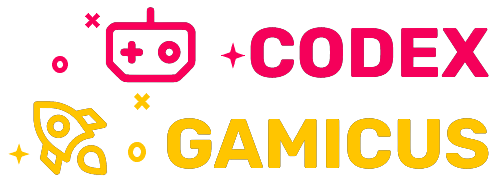N. Harmonik@legacy41984657 (talk | contribs) No edit summary |
BritishCynic (talk | contribs) No edit summary |
||
| (One intermediate revision by one other user not shown) | |||
| Line 4: | Line 4: | ||
| publisher = Data East |
| publisher = Data East |
||
| distributor = Data East |
| distributor = Data East |
||
| − | | |
+ | | ww_rel = {{Release|1983|||WW}} |
| − | | genre = Fighting |
+ | | genre = Fighting |
| − | | |
+ | | features = Single-player,Multi-player |
| − | | platforms = Arcade,Commodore 64 |
+ | | platforms = Arcade,Commodore 64,Famicom,Nintendo Entertainment System,DOS |
| − | | media = |
+ | | media = Cartridge |
| − | | input = gamepad |
||
}} |
}} |
||
| + | |||
'''''Tag Team Wrestling''''' is a 1983 [[video arcade|arcade]] [[video game]] developed by [[Technos Japan Corporation|Technos Japan]] and released in the [[United States|U.S.]] by [[Data East]]. In 1986, the game was ported to the [[Nintendo Entertainment System]] (NES). The Famicom/NES version was developed by Sas Sakata, a company which also developed the NES versions of ''[[Karnov]] '' and ''[[BurgerTime]]''. |
'''''Tag Team Wrestling''''' is a 1983 [[video arcade|arcade]] [[video game]] developed by [[Technos Japan Corporation|Technos Japan]] and released in the [[United States|U.S.]] by [[Data East]]. In 1986, the game was ported to the [[Nintendo Entertainment System]] (NES). The Famicom/NES version was developed by Sas Sakata, a company which also developed the NES versions of ''[[Karnov]] '' and ''[[BurgerTime]]''. |
||
Latest revision as of 10:00, 27 December 2015
Tag Team Wrestling is a 1983 arcade video game developed by Technos Japan and released in the U.S. by Data East. In 1986, the game was ported to the Nintendo Entertainment System (NES). The Famicom/NES version was developed by Sas Sakata, a company which also developed the NES versions of Karnov and BurgerTime.
In the NES version, two professional wrestling tag-teams, the Strong Bads and the Ricky Fighters, battle against each other in tag-team action, or a single player competes in a series of tournaments to win ever larger trophies. The Strong Bads provided the basis for the character Strong Bad on the popular Homestar Runner website, which abounds with obscure 1980s popular culture references.[1]
As an 8-bit game, Tag Team Wrestling has a limited number of wrestling moves and characters. Moves and counters are performed through the use of a real-time, menu-based action-reaction fighting module. After engaging in a grapple, players quickly scroll through a menu and choose a technique to perform. Each of the four characters has a unique move that can only be used against one other "rival" wrestler.
The name of the game in Japan is The Big Pro Wrestling! for the original arcade version and Tag Team Pro Wrestling for the Family Computer version. In North America, it is Tag Team Wrestling for both the arcade and NES versions. The game was also ported to the Commodore 64 and IBM PC computers before it even made it to the Famicom, in 1984.
Critical reception[ | ]
Seanbaby lists Tag Team Wrestling as the fourth-worst NES game ever. 1up.com, on the other hand, credits it with introducing the tag-team concept to video games and hails it as a major innovation.
Tag Team HD[ | ]
Australian developer SunDawg acquired rights to the Tag Team Wrestling franchise in 2004. The company is in the process of developing a high definition update to the original Tag Team Wrestling, which is scheduled for release on Xbox Live.
Trivia[ | ]
- The animated character Strong Bad of Homestar Runner fame was based on a Lucha libre-styled fighter from the game.[1]
- Like most wrestling games, once you were pinned you had to rapidly push the buttons to break the pin. However, there was no limit to how many times you could be pinned (most wrestling games have a system where, after a certain amount of pins you just can't break it) so as long as you could push the buttons fast enough, you couldn't lose. The proliferation of NES controllers with rapid fire buttons made you unbeatable and therefore the game could be played infinitely, as the tag team mode seemed to have no ending.
References[ | ]
- ↑ 1.0 1.1 Strong Bad. Homestar Runner Wiki. Retrieved on 16 July 2009
External links[ | ]
- Tag Team Wrestling wiki guide at StrategyWiki
